In Yakutia, a new "gold rush" — hunting for mammoth tusks
Categories: Animals
By Pictolic https://pictolic.com/article/in-yakutia-a-new-gold-rush-hunting-for-mammoth-tusks.htmlA new "gold rush" is developing in Siberia: men illegally extract tusks and the remains of woolly mammoths, and then try to sell them on the black market. It's hard, dangerous and illegal work, but people still go on long expeditions in the hope of getting rich. In 2016, the photographer of Radio Liberty, Amos Chapple, went to Siberia and told about the work of the seekers in a series of pictures.
(37 photos in total)
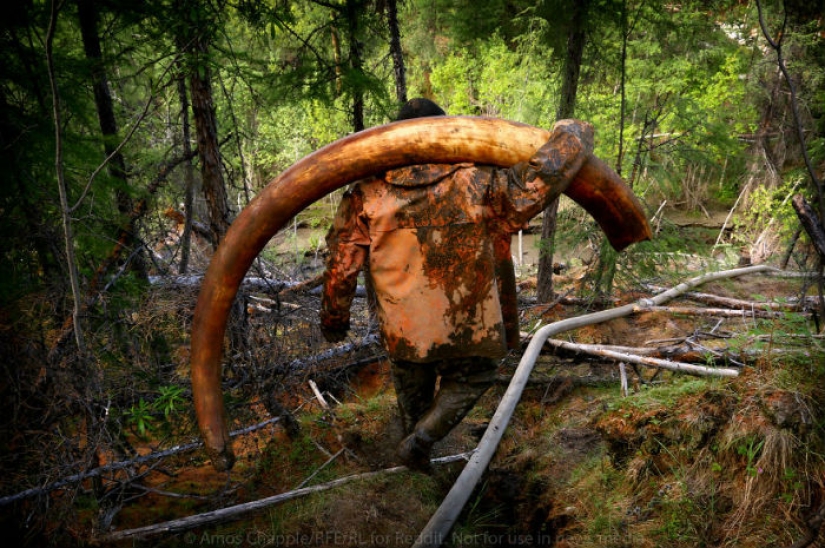 Source: Present
Source: Present
It is believed that woolly mammoths, extinct relatives of modern elephants, lived in Siberia about 400 thousand years ago. Now it is the territory of permafrost: thanks to the thick layer of ice under the ground, mammoth skeletons have been stored for thousands of years. To get to the treasures buried underground, hunters need to break the ice layer with water pumped from the nearest river — this can take months. But the tusk can be sold to the Chinese for about 35 thousand dollars (about 2 million rubles) — and this is a justified risk for residents of cities with an average salary of less than 500 dollars (28 thousand rubles).
However, this is not a pleasant walk for guaranteed money. Men leave their families and go on a cross-country journey, where they have to fight hordes of mosquitoes and hide from the police, who can issue them a fine or put them in jail. To survive this ordeal, they drink a lot of vodka and cheap beer, which leads to frequent fights. Perhaps the worst thing is how their actions affect nature: sewage from the broken permafrost returns to the surrounding rivers and pollutes the flow.
Look at what people go to for the sake of illusory wealth — up to the point of being ready to die. The author of the photos, Amos Chapple, commented on them in an article for Radio Liberty — then we publish his direct speech.
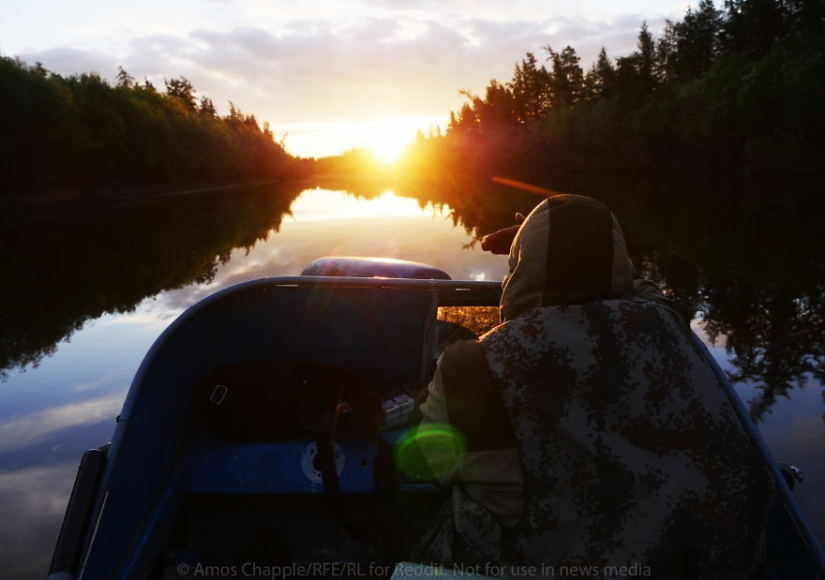
Since the sale of ivory is now carefully controlled, China has to make do with "ethical" tusks of extinct mammoths. Every summer, seekers go to the wilderness in the hope of getting rich. I got access to a place where groups of men are illegally hunting for the remains of the disappeared giants from Siberia — but only on condition that I will not disclose the names of people and the exact location of the shooting.
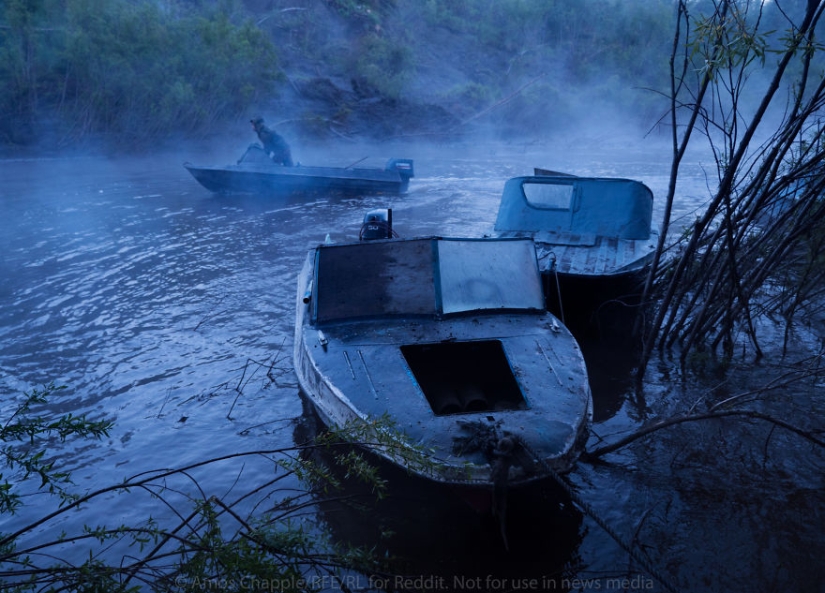
The bend of the river, dotted with the remains of mammoths. From the nearest village you need to drive four hours by motor boat.
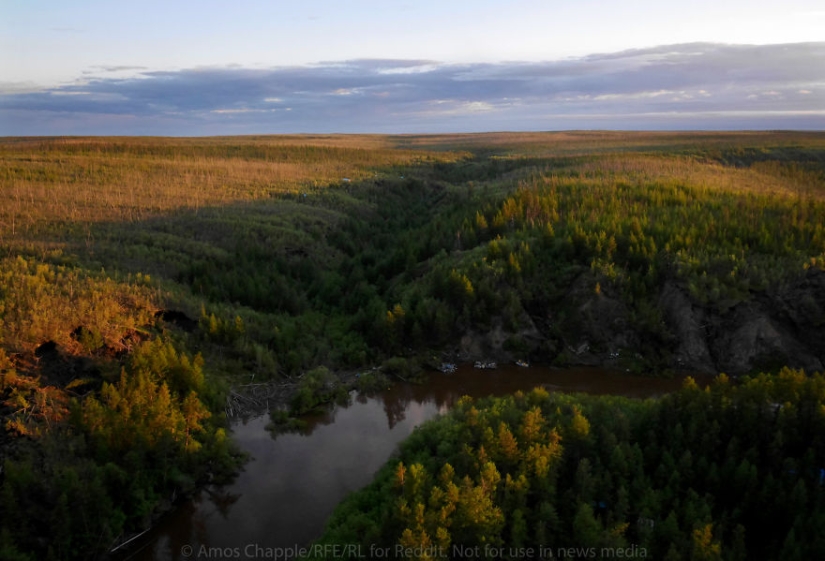
One paleontologist told me that once there was most likely a swamp here - prehistoric animals drowned in it.
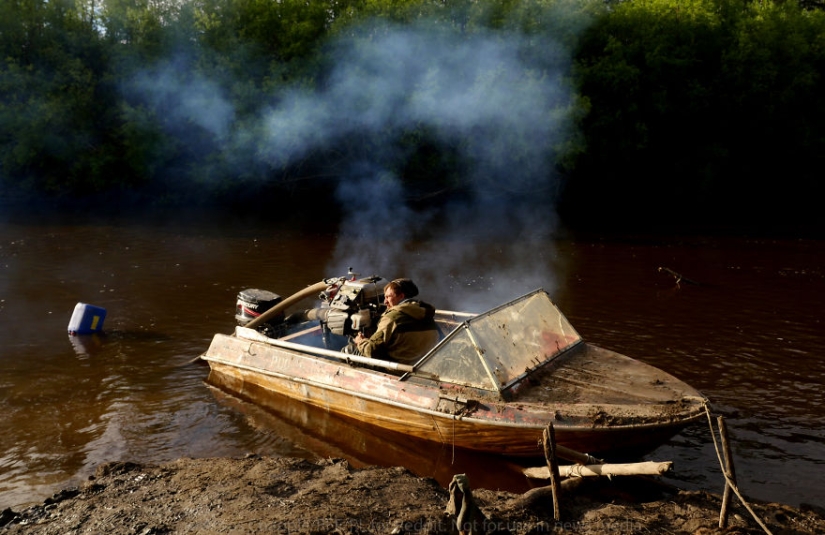
Treasure hunters pump water out of the river using fire pumps — they prefer devices from Tohatsu.
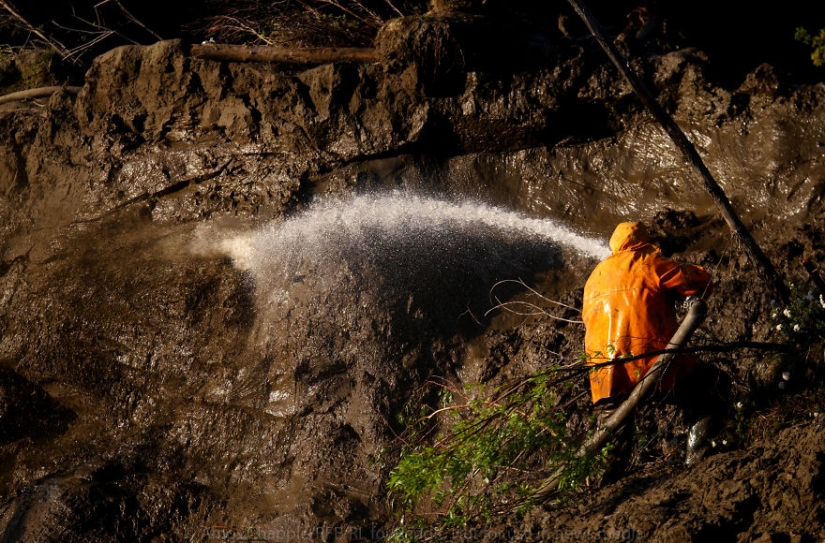
Then they drain this water next to the river.
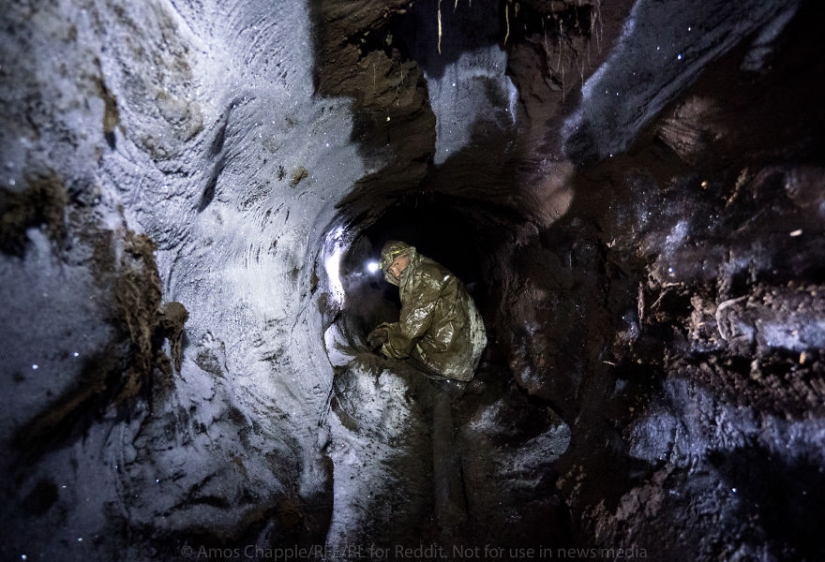
Some dig deep long tunnels underground. The walls in them are as soft as the soil in the garden.
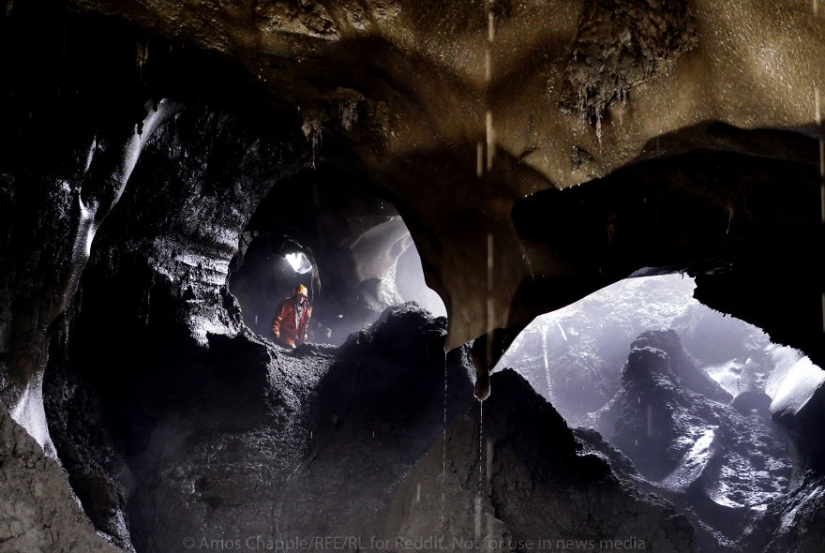
Other prospectors are carving huge caves in the permafrost.
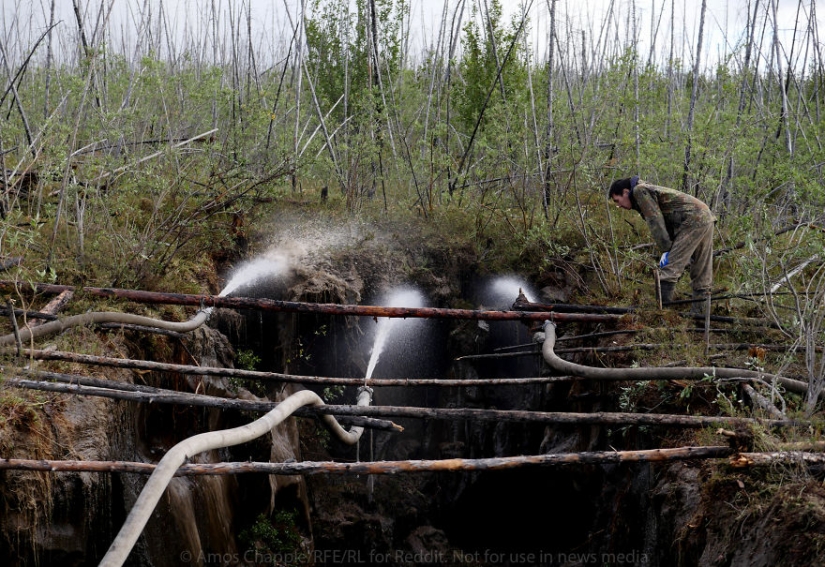
Someone is hollowing out channels right in the upper layer of the soil.
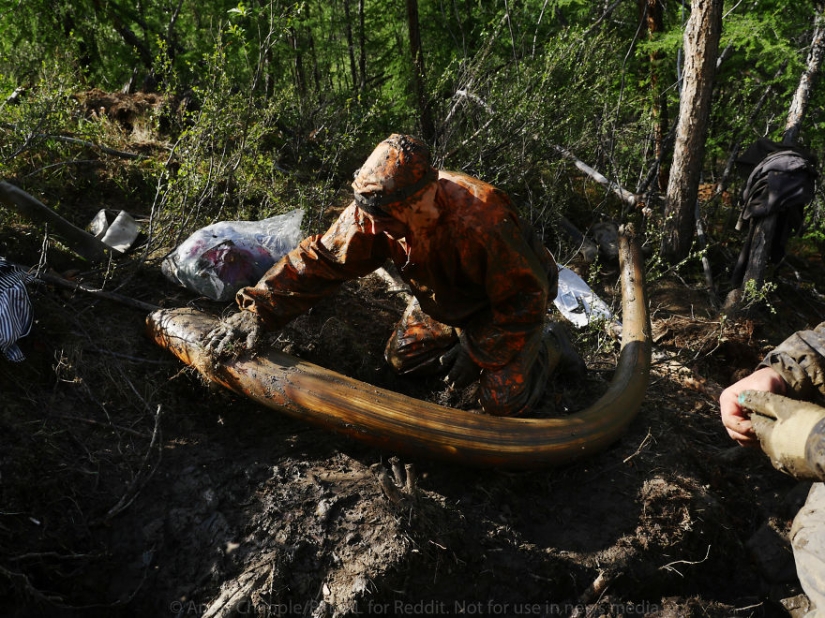
And they all hope to find it — a perfectly preserved mammoth tusk. For a kilogram of this, they give $ 520.
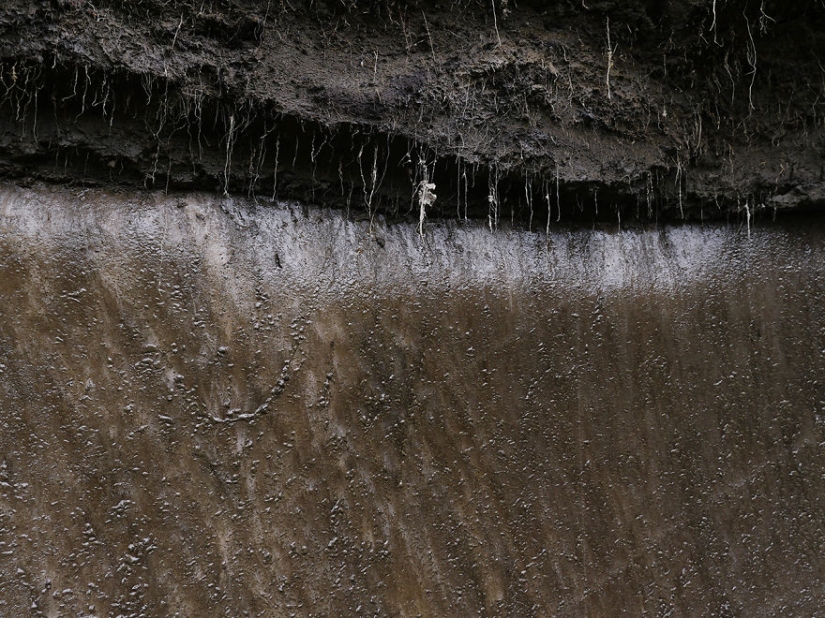
Under Yakutia lies a huge layer of frozen soil.
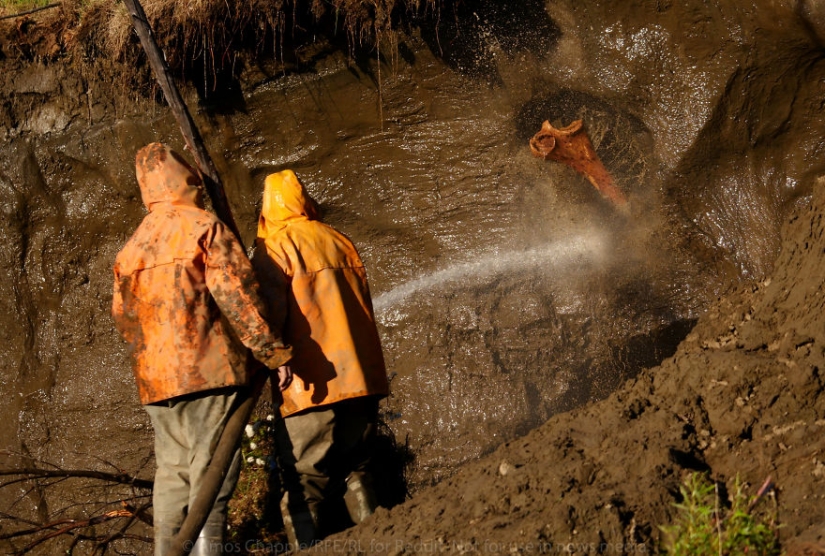
In the soil of normal temperature, bones decompose within 10 years. But in the permafrost, tusks and bones like this can be stored for tens of thousands of years, which makes Yakutia a Mecca for mammoth hunters.
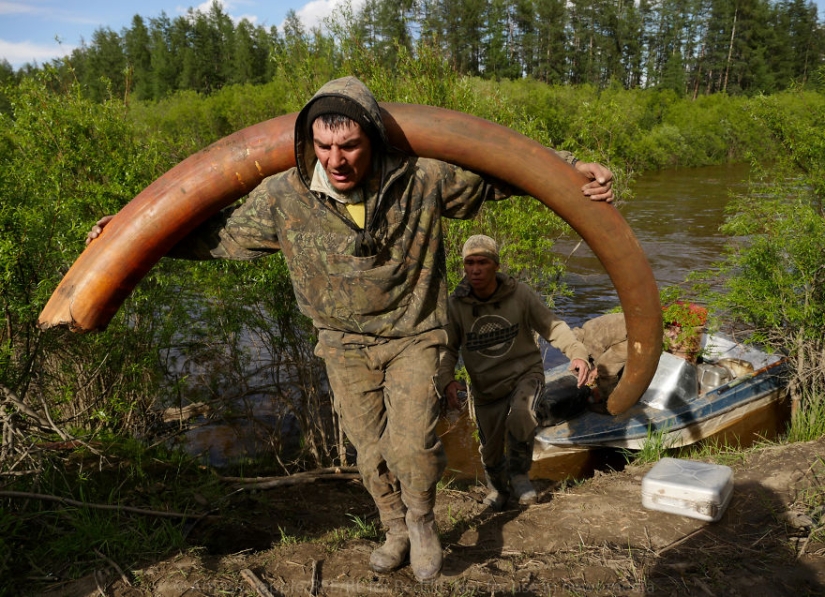
I photographed this 65-kilogram tusk a few minutes after it was removed from the frozen ground. It was sold for 34 thousand dollars. The two men who found him found three more tusks this week, and one of them weighed as much as 72 kilograms.
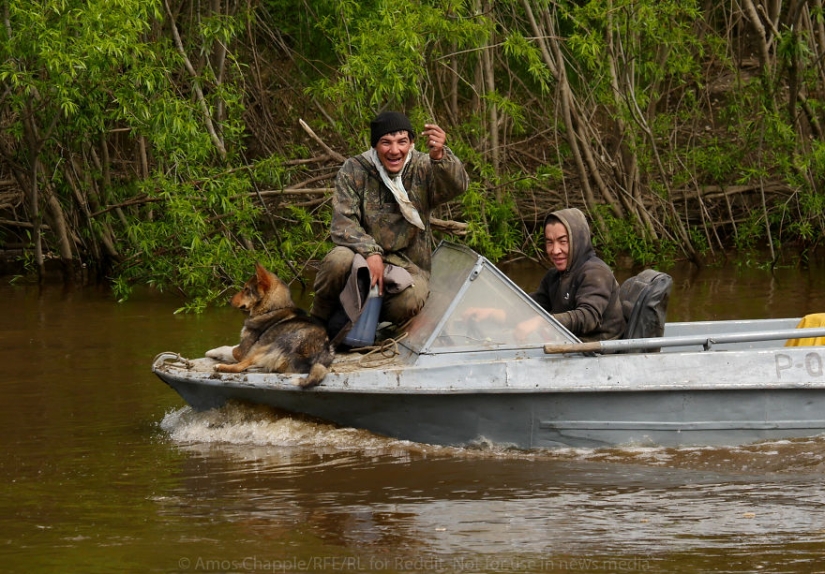
Lucky hunters rejoice in future profits. In eight days they earned about 100 thousand dollars.
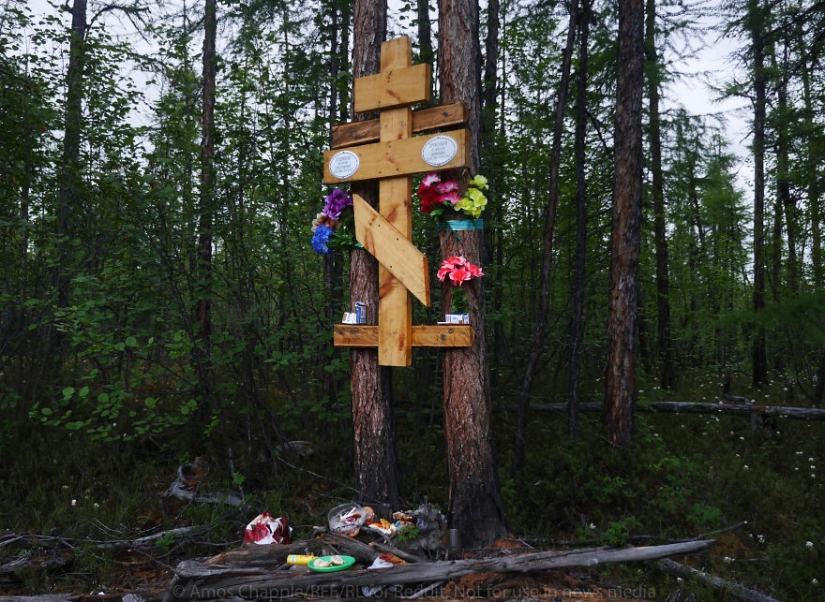
This is a lot of money for a region with an average salary of $ 500 per month, but it does not always work out to buy a happy ending. In the photo there is a memorial to two young hunters who found treasures worth more than 100 thousand dollars, had a lot of fun, and then swam upstream drunk. The boat capsized and they drowned.
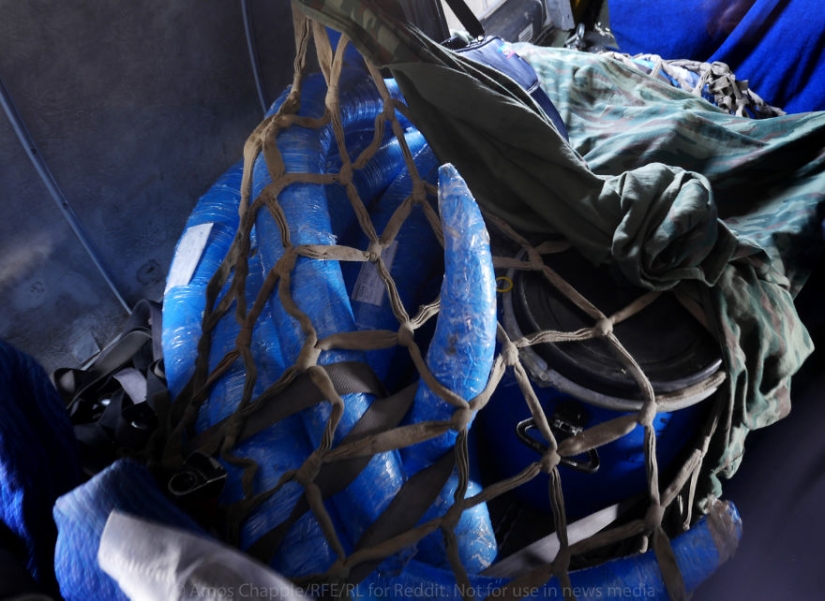
In the hunters' hometown, elusive "agents" pay in cash for freshly dug tusks. These trophies were wrapped in plastic bags and sent by plane to Yakutsk, from where they will fly to China. The cargo was covered with a tarpaulin. When I lifted it up, the stewardess yelled at me, and immediately after this photo came up to me and knocked the camera out of my hands.
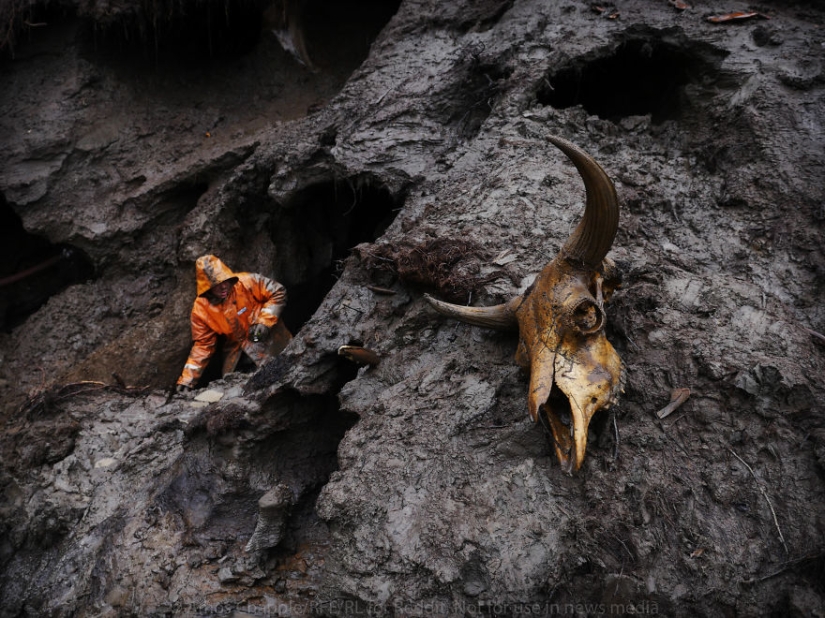
Here you can find not only the remains of mammoths. This is the skull of a bison that once lived on the Siberian plains.
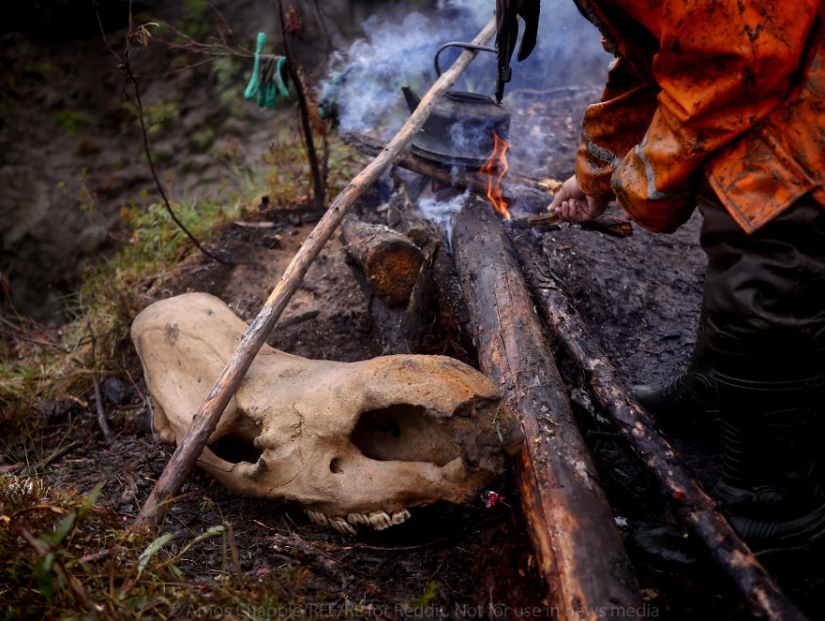
And this skull, adapted for a teapot stand, belonged to a woolly rhinoceros, which became extinct from 8 to 14 thousand years ago.
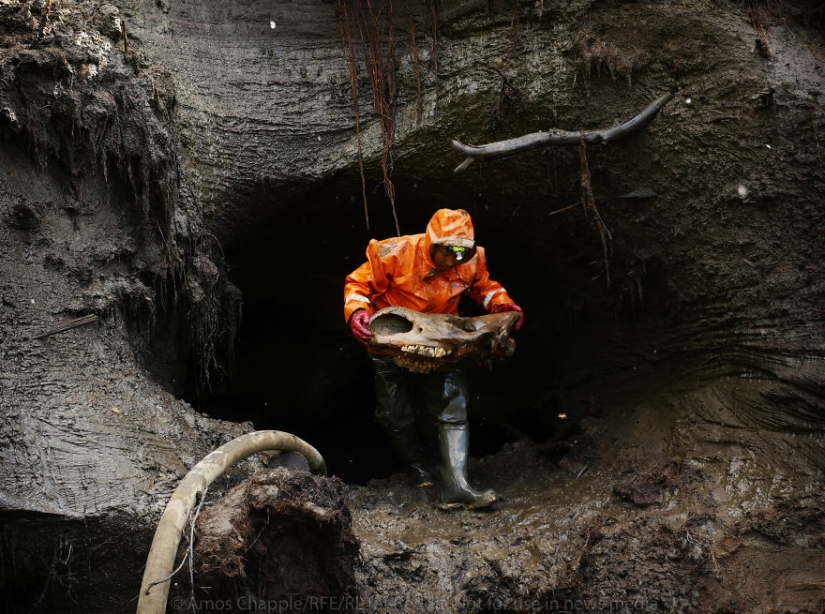
Another skull of a rhinoceros that last saw the sun at least 11 thousand years ago. The man who found him said: when you find a skull, the horn is usually somewhere nearby, 15-20 meters away.
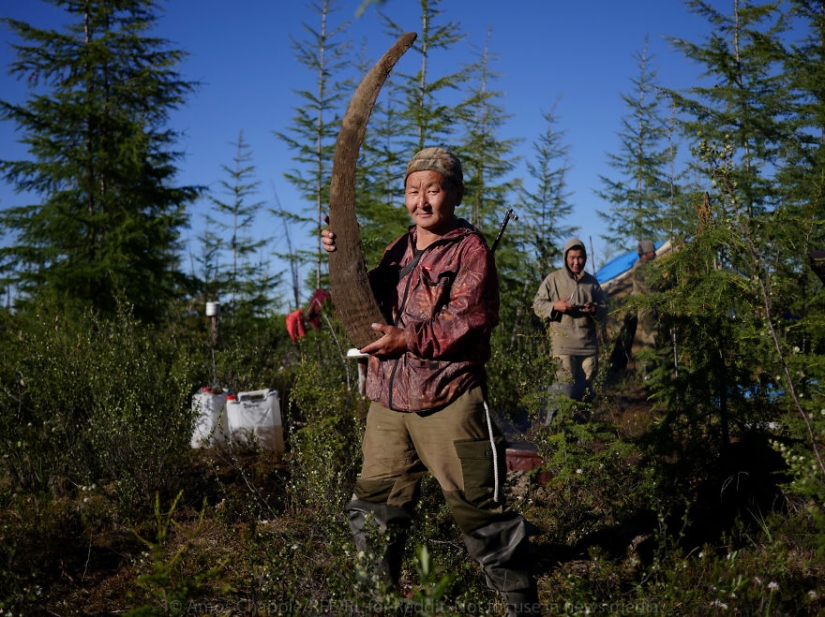
This rhino horn weighing 2.4 kilograms was sold for 14 thousand dollars. Most likely, it will end up in Vietnam, where it will be crushed into powder and sold as medicine.
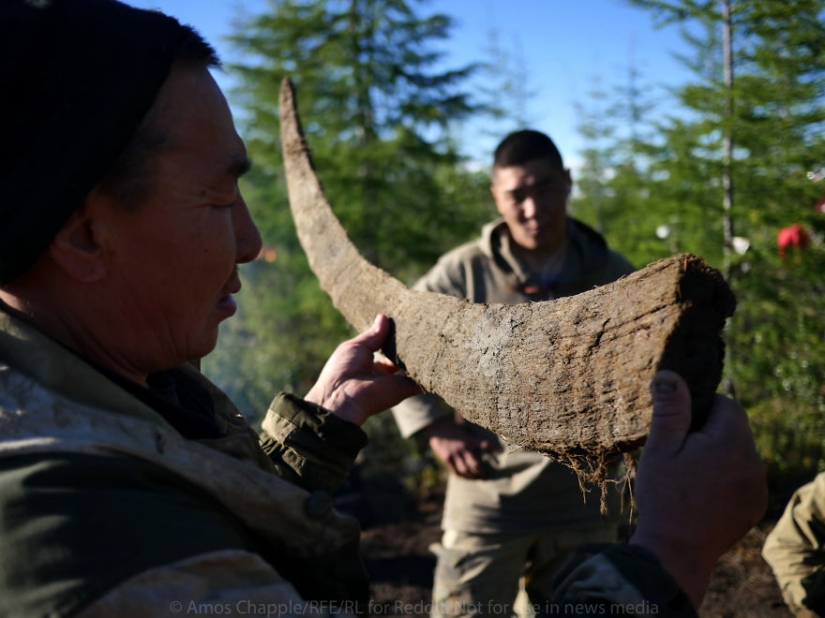
The raw horn feels like a snag and smells like a dog. In Vietnam, it is believed that the powder from such a horn cures cancer, so there it will literally cost more than gold.
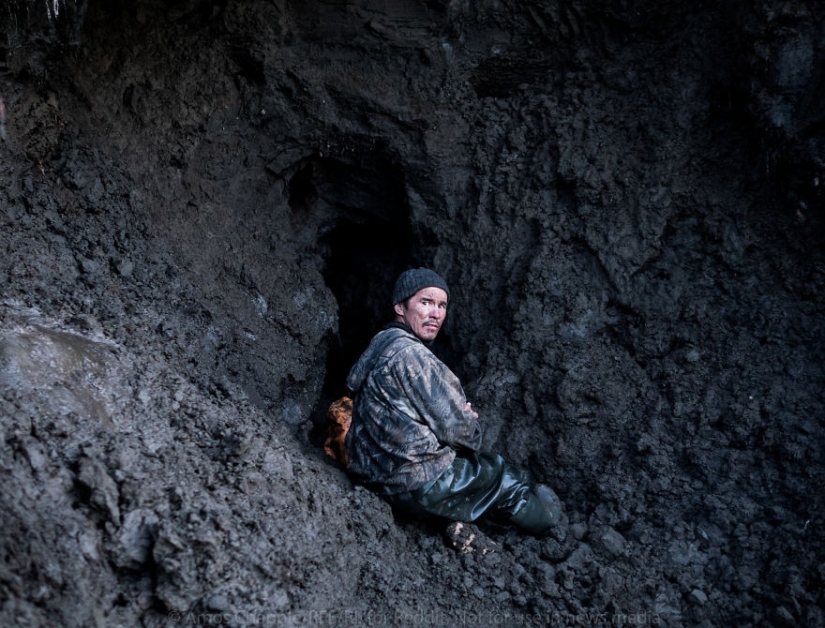
However, most of the seekers will spend the whole summer doing hard work in the mud in vain and will only lose the money invested.
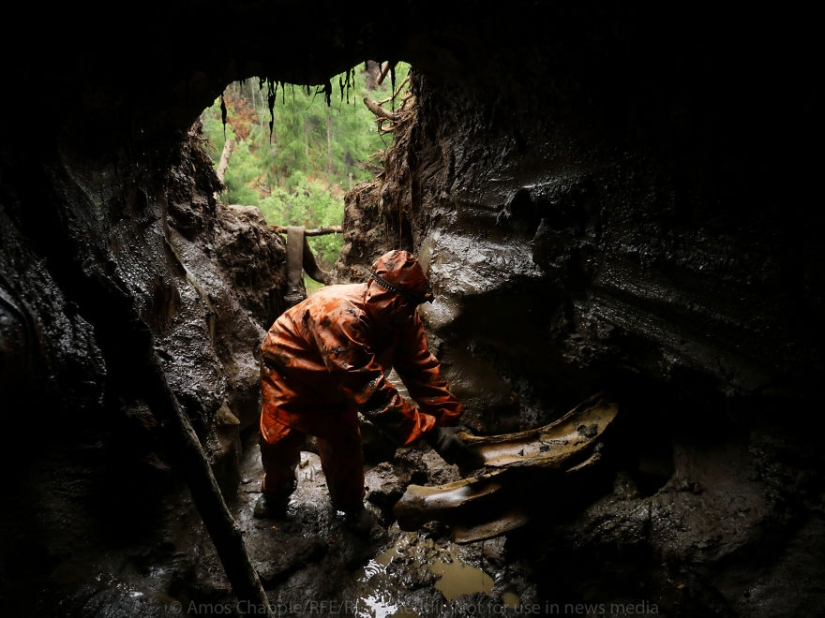
It takes tons of fuel to run the pumps, and most crews only find useless bones like these. Paleontologist Valery Plotnikov, who is familiar with this camp, estimates the number of successful seekers at 20-30%: "It's very sad. Many of them take loans from the bank for the sake of the expedition."
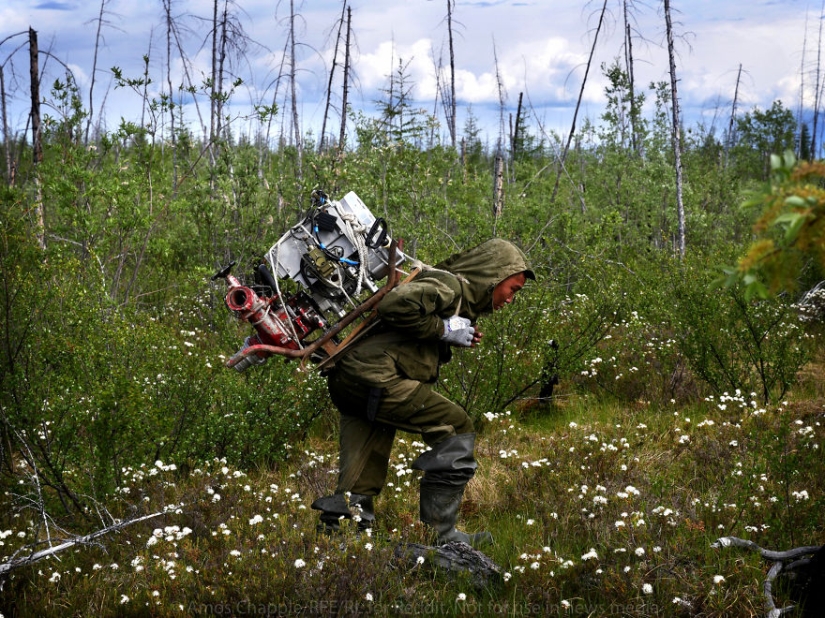
To save on the trip, this young hunter made a pump from the engine of the snowmobile "Buran".
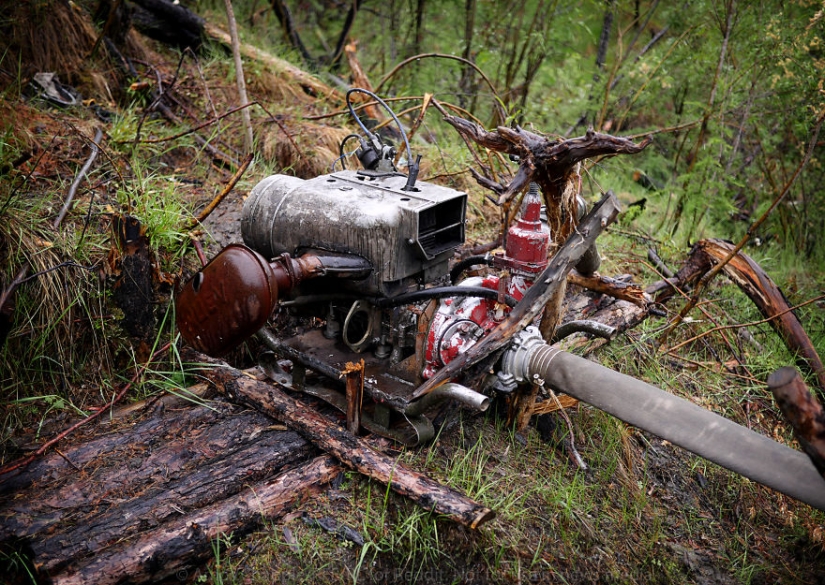
When the frost hits, he will install the engine on the snowmobile again.

Most of these men will spend the whole summer away from home and family.
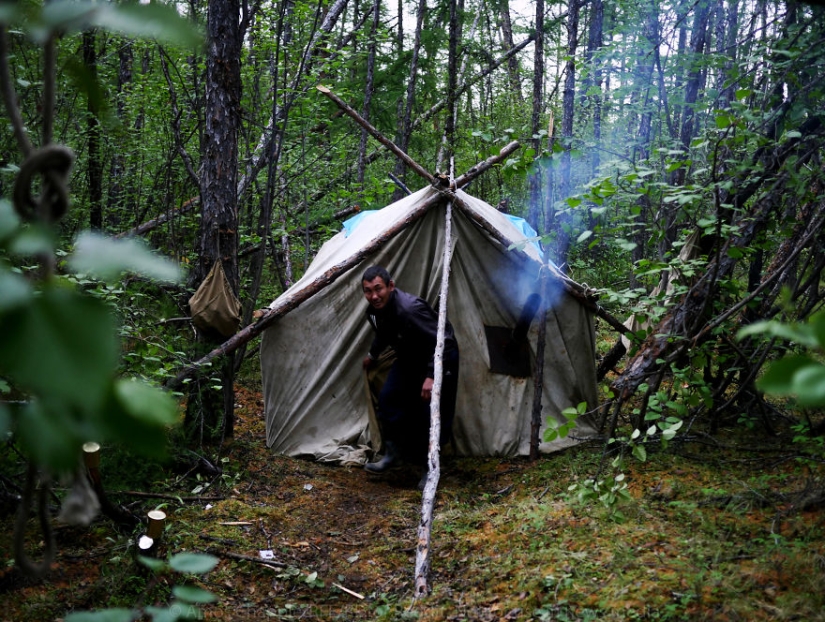
In dark tents, seekers relax while playing cards, watching short popular videos or porn from their phone.

This seeker wrote a letter to his wife and gave it to a group of comrades who were going to the city. Here is her answer — and this is the first news from my wife in a week.
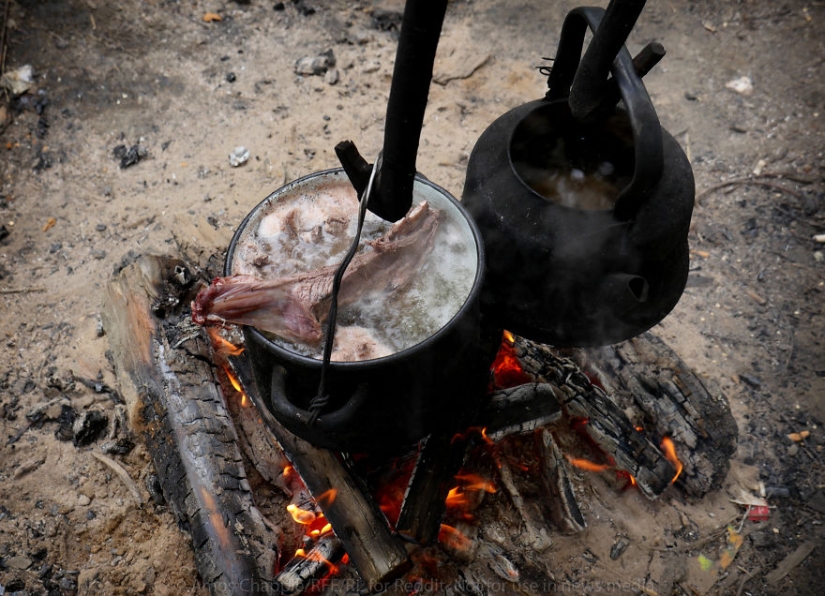
This piece of venison is a rare luxury. Usually they eat stew and noodles here. Two seekers said that once, "when I had to," they ate dog meat. They said it smells like lard.

Mosquitoes are annoying here almost all the time. Only on the coldest morning you can take an hour or two to rest.

In warm weather, some men dress more like beekeepers rather than people doing hard work.

When hunters have alcohol, the situation gets out of control. These seekers went to the city to replenish supplies, and halfway back they got terribly drunk. Soon after this photo was taken, the fun ended.
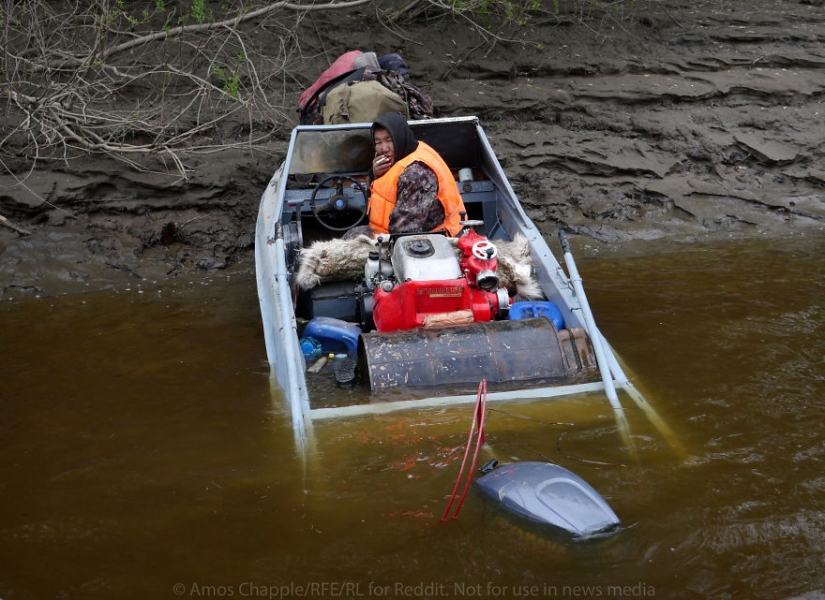
The men crashed into the shore at high speed. At three o'clock in the morning, rescuers found them unconscious in a boat with half-submerged equipment. Not far from this place in 2015, two seekers drowned.
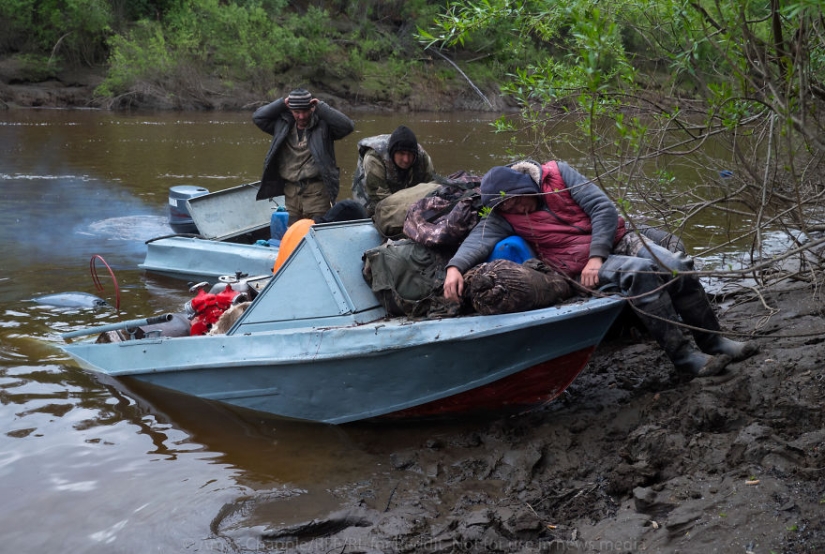
The next day, the drinking continues. Usually, when alcohol appears in the camp, they drink it all at once. The next day, the men sleep off, and then return to work.
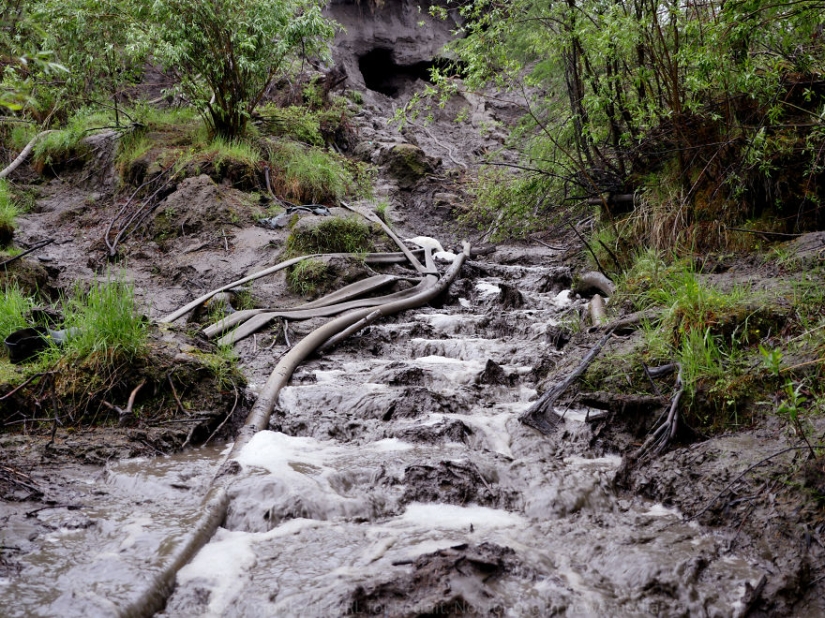
The mutilated land is a clear result of the methods used by hunters for tusks, but the water system of Yakutia is even worse. The water that the seekers pump out returns to the river, filling it with silt. A fish has disappeared in the river near our place of extraction — the seekers no longer take fishing rods with them.
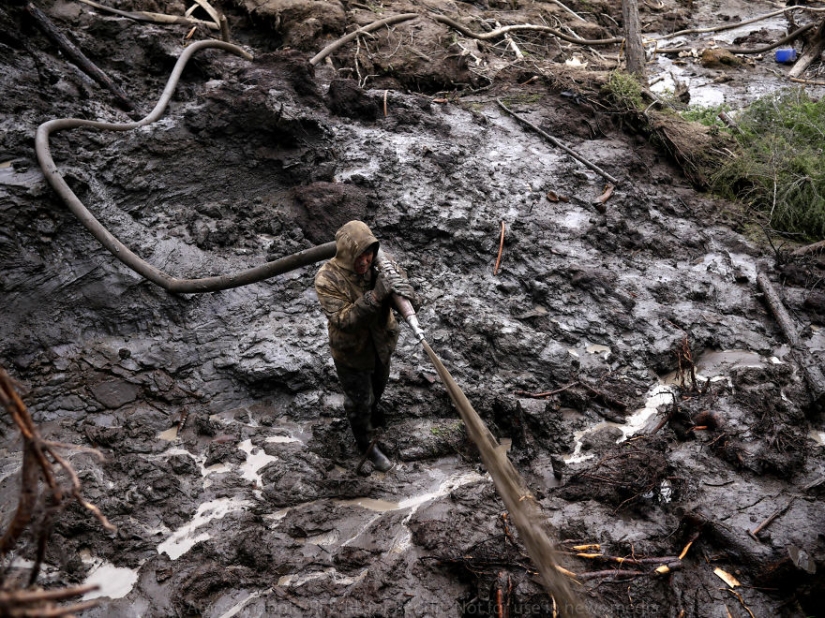
One seeker told me, "I know it's bad, but what can I do? I don't have a job, and I have a lot of children."
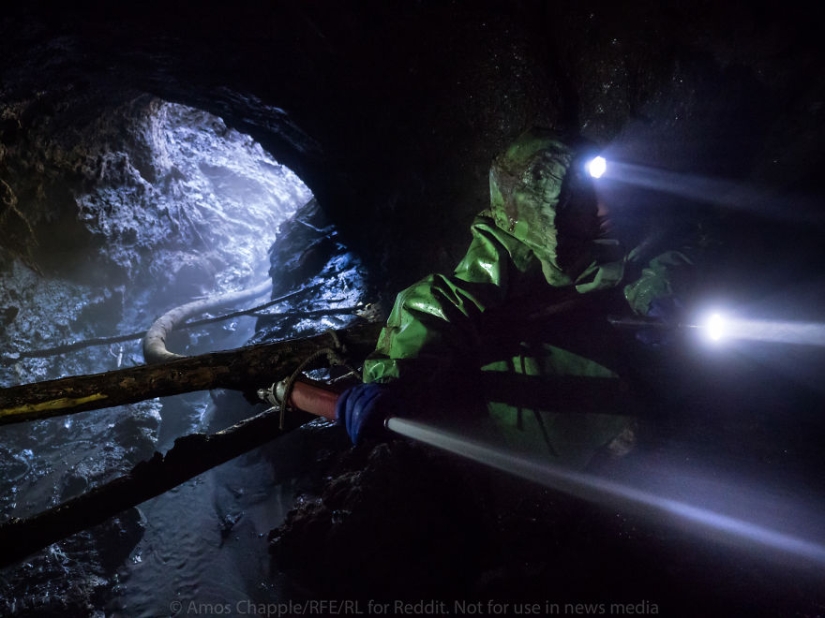
In any case, there are more and more hunters for tusks in Yakutia every year. And while stories will be told in neighboring towns about those who instantly became fabulously rich, this trend will only grow.
Keywords: Mammoth | Hunting | Siberia | Amos chapple | Yakutia
Post News ArticleRecent articles

It's high time to admit that this whole hipster idea has gone too far. The concept has become so popular that even restaurants have ...

There is a perception that people only use 10% of their brain potential. But the heroes of our review, apparently, found a way to ...
Related articles

Photographer Alexander khimushin took a backpack and went to travel the world. He visited 84 countries and realized that the most ...

The basis of almost all classical works based on real cases. The author had to do was skip the story through the prism of their ...

In November 1942 on the banks of the Volga, the Red Army counterattacked, bogged down in Stalingrad by the Nazis. At the same time ...

New Year's is a time to surprise and delight loved ones not only with gifts but also with a unique presentation of the holiday ...